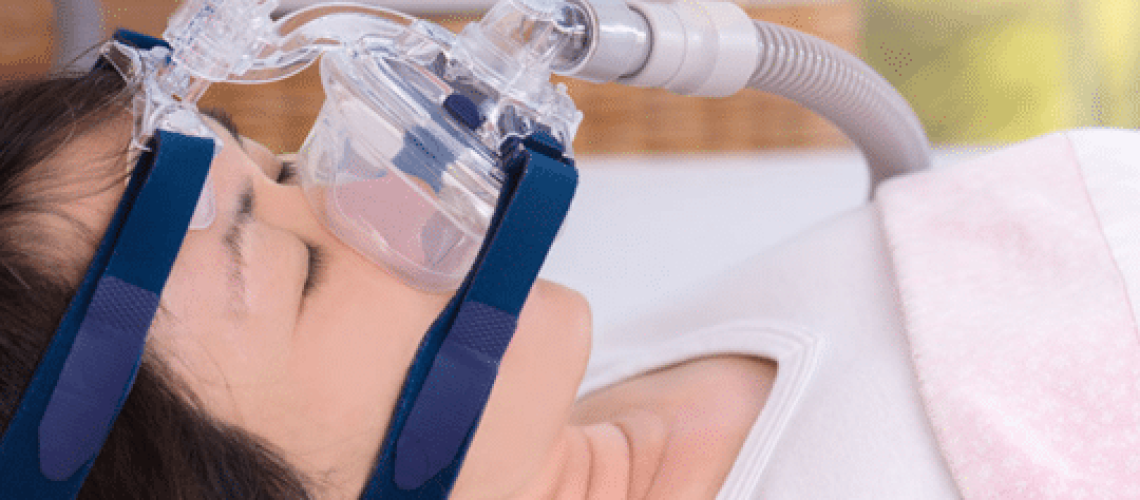Do you ever wake up feeling like you didn’t get a good night’s sleep, even though you slept for hours? Do your loved ones complain about your loud snoring or gasping for air during the night? If so, you may be suffering from sleep apnea. This common yet serious sleep disorder affects millions of people worldwide and can lead to various health complications if left untreated. In this blog post, we’ll explore what sleep apnea is, its causes and symptoms, as well as different treatment options available to help improve your quality of sleep and overall health. So grab a cup of coffee and let’s dive into understanding sleep apnea!
What is Sleep Apnea?
Sleep apnea is a common sleep disorder characterized by breathing pauses or shallow breaths during sleep. The word “apnea” means “without breath,” and this condition can cause both short-term and long-term health problems if left untreated.
There are three types of sleep apnea: obstructive, central, and complex. Obstructive sleep apnea (OSA) is the most common type, accounting for of diagnosed cases. It occurs when your throat muscles relax during sleep, blocking your airway and causing you to snore loudly or gasp for air.
Central sleep apnea (CSA) occurs when your brain fails to send proper signals to the muscles that control breathing. Complex sleep apnea syndrome (CompSA) is a combination of both OSA and CSA.
If you suspect that you may have symptoms of any type of Sleep Apnea it’s important to see a doctor who specializes in treating Sleep Disorders right away!
The Different Types of Sleep Apnea
There are three main types of sleep apnea – obstructive, central, and complex.
Obstructive sleep apnea is the most common type and occurs when the muscles in the throat relax during sleep, causing a blockage of airflow. This can result in snoring or gasping for air.
Central sleep apnea occurs when the brain fails to send the proper signals to control breathing during sleep. This can happen due to certain medical conditions such as heart failure or stroke.
Complex sleep apnea syndrome, also known as treatment-emergent central sleep apnea, is a combination of both obstructive and central sleep apnea.
It’s important to understand which type of sleep apnea one has in order to determine the best course of treatment. Diagnosis typically involves a polysomnogram test where patients are monitored while they sleep to measure various aspects such as heart rate, oxygen levels, and brain activity.
Identifying and treating any type of Sleep Apnea is crucial for overall health and well-being.
Causes of Sleep Apnea
Sleep apnea is a condition that occurs when the airway is partially or completely blocked during sleep, causing breathing to repeatedly stop and start. There are several factors that can contribute to this blockage.
One of the primary causes of sleep apnea is obesity. Excess weight in the neck area can put pressure on the airway, making it more likely to collapse during sleep. This is why losing weight through diet and exercise is often recommended as a treatment for those with sleep apnea.
Smoking and alcohol consumption can also increase the likelihood of developing sleep apnea. Smoking irritates the throat muscles, while alcohol relaxes them, both leading to decreased muscle tone in the airway.
Other risk factors include genetics, age (over 40), gender (men are more likely than women), and certain medical conditions such as high blood pressure or diabetes.
It’s important to note that even individuals who don’t have any obvious risk factors can still develop sleep apnea. Therefore, it’s essential to speak with your doctor if you suspect you may be suffering from this condition so they can properly diagnose and treat you.
Symptoms of Sleep Apnea
Sleep Apnea is a common sleep disorder that affects millions of people around the world. Symptoms can vary from person to person, but there are some main indicators that suggest the presence of Sleep Apnea.
One of the most common symptoms is loud snoring, especially if it’s accompanied by choking or gasping for air during sleep. This happens because when our muscles relax during sleep, they can narrow and block our airways causing breathing difficulties.
Another symptom is excessive daytime fatigue and drowsiness, even after getting a full night’s rest. Patients with Sleep Apnea often wake up feeling tired and unrefreshed in the morning because their sleep was interrupted throughout the night due to frequent episodes of paused breathing.
People with Sleep Apnea may also experience headaches upon waking up in the morning, dry mouth or sore throat upon waking too early as well as irritability and difficulty concentrating throughout their day-to-day tasks.
It’s important to seek medical advice if you’re experiencing any of these symptoms so that your doctor can conduct proper testing and diagnose whether or not you have Sleep Apnea.
Treatment Options for Sleep Apnea
Sleep apnea is a common sleep disorder that can have serious consequences if left untreated. While the causes of this condition vary from person to person, it’s important to recognize the symptoms and seek treatment as soon as possible. Treatment options for sleep apnea include lifestyle changes, such as losing weight or quitting smoking, using breathing devices like CPAP machines, and in some cases surgery.
It’s crucial to work closely with your healthcare provider to determine which treatment option is best for you. With proper management, people with sleep apnea can enjoy a better quality of life and reduce their risk of developing other health problems down the line. So don’t wait – if you suspect you may have sleep apnea or are experiencing any related symptoms, talk to your doctor today!

